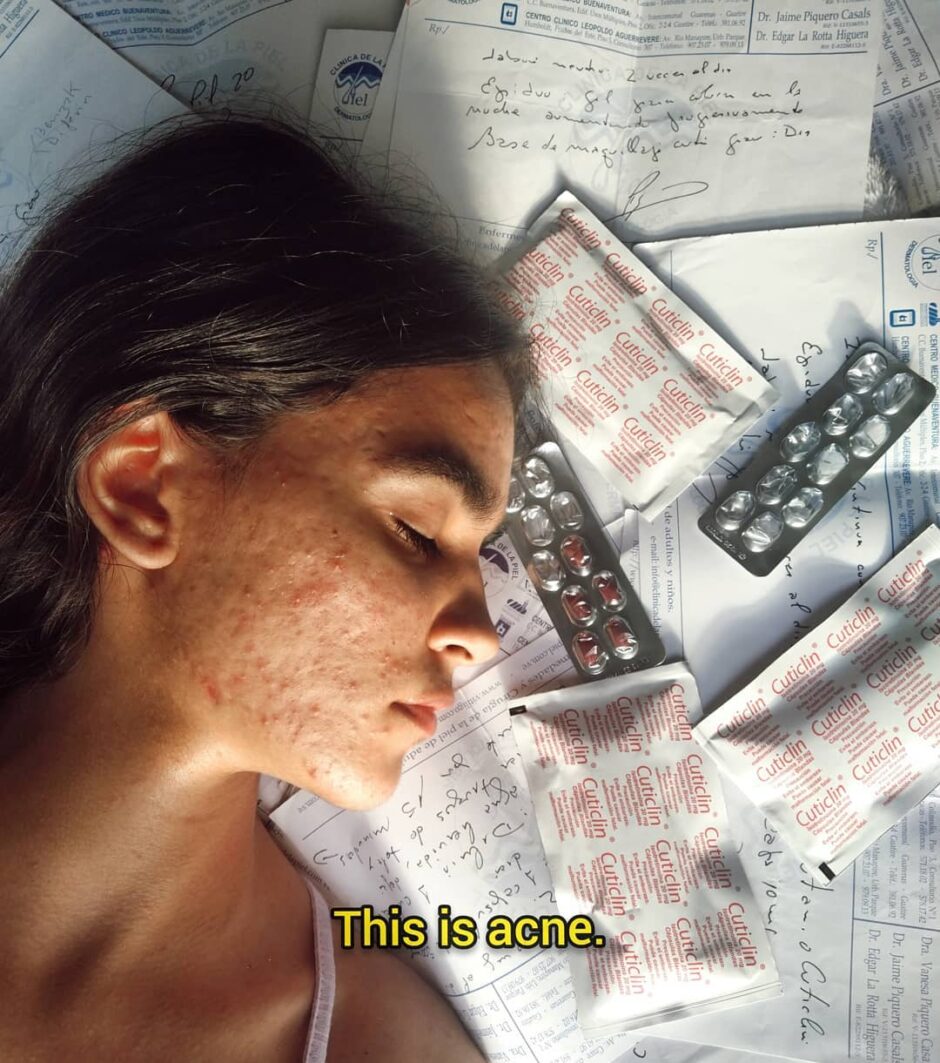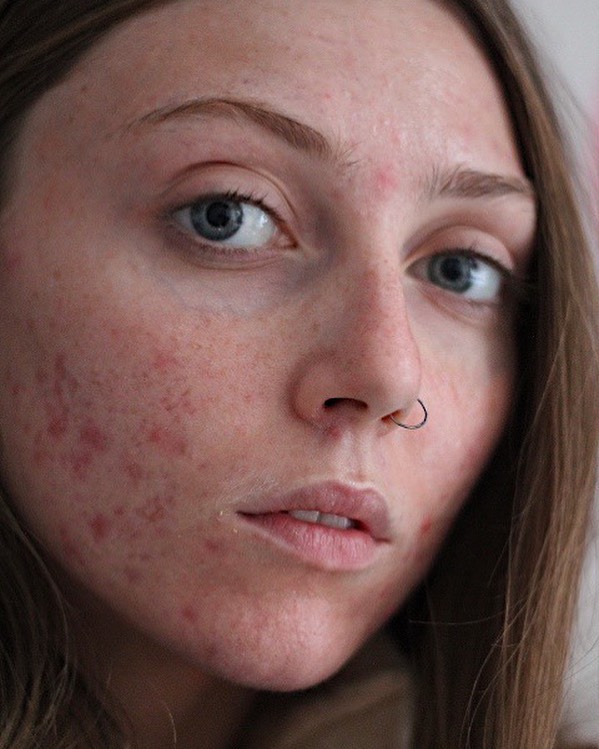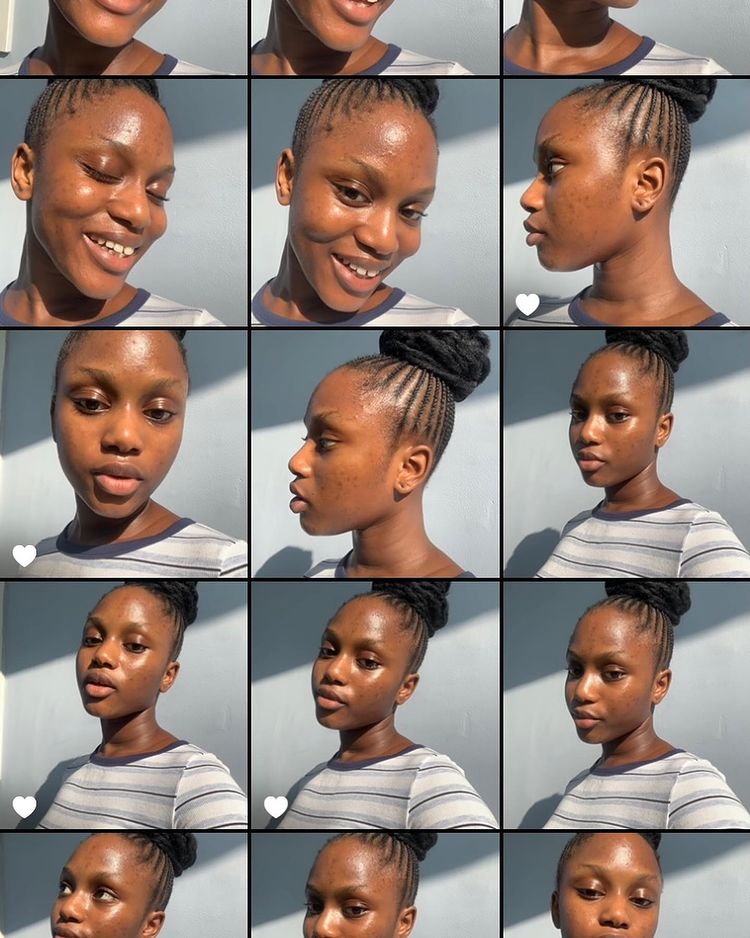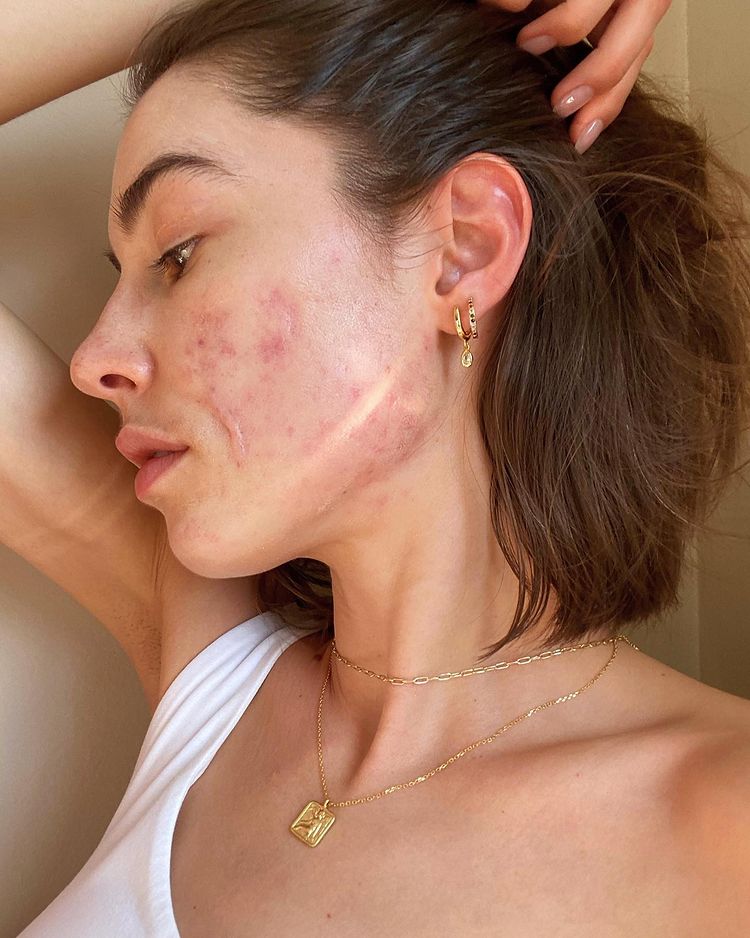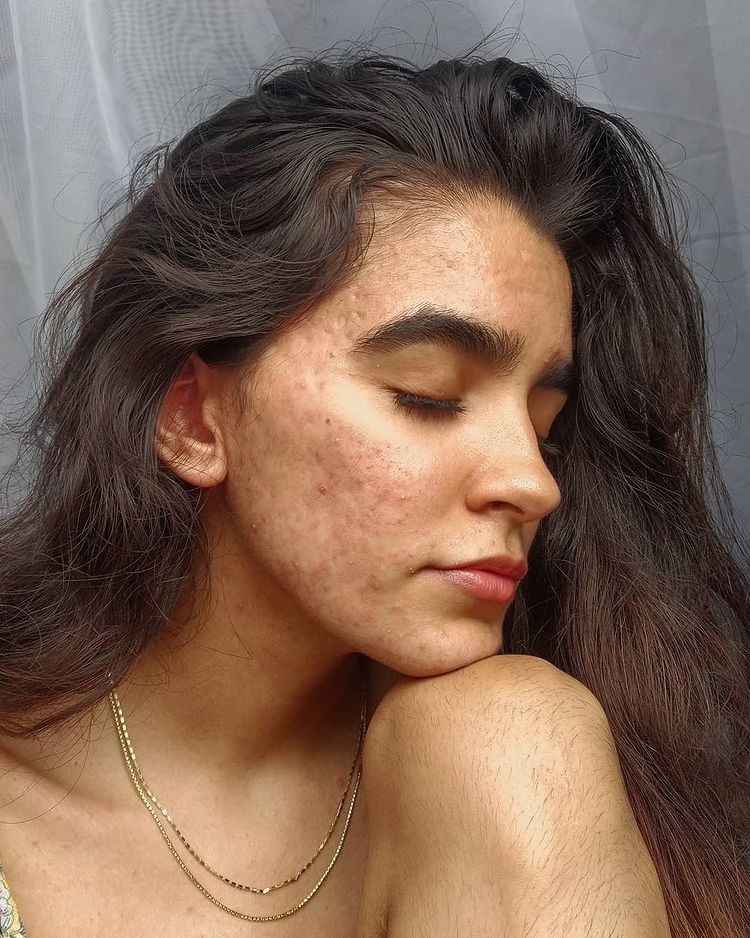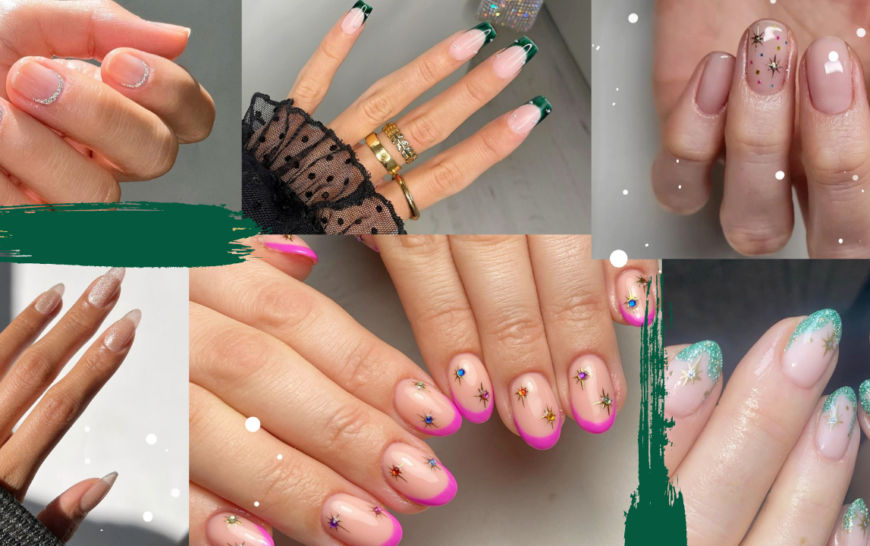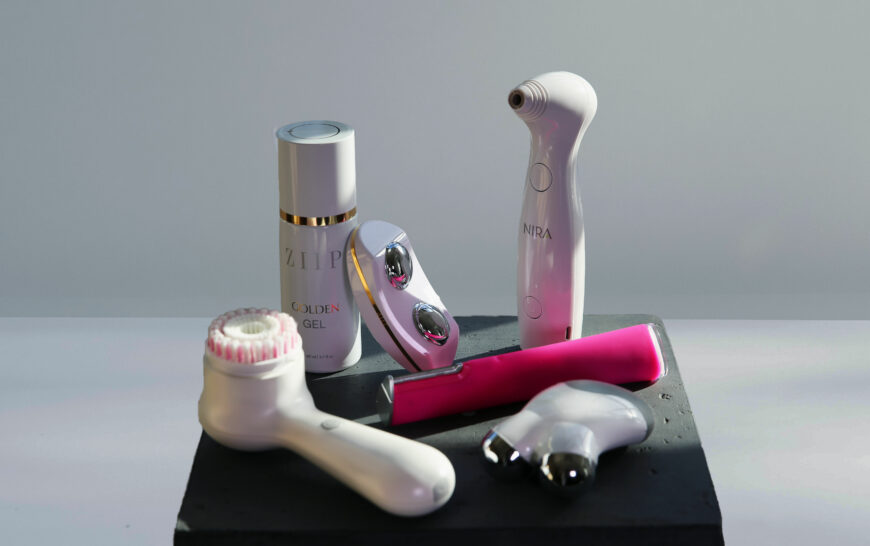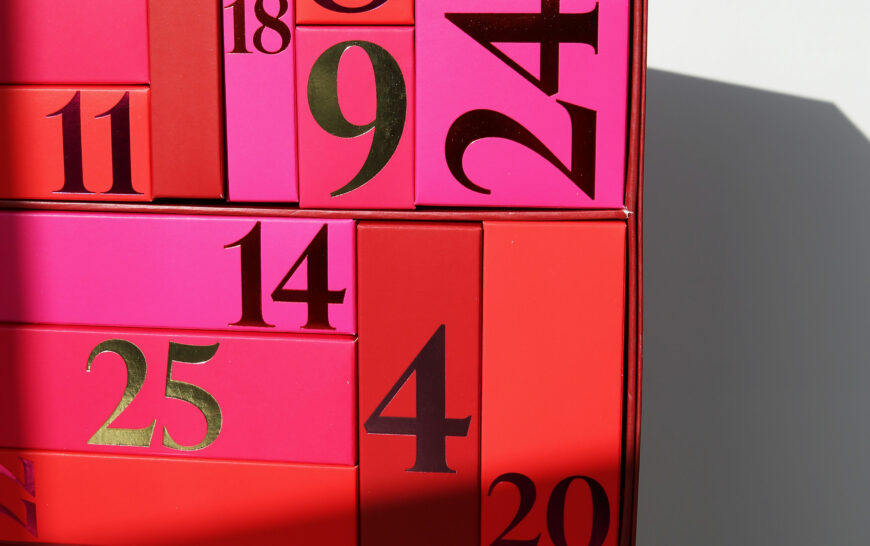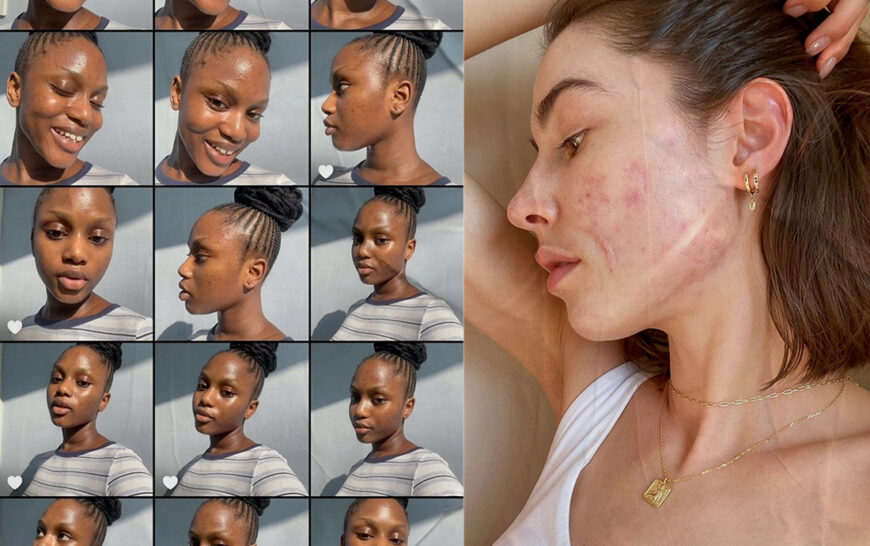
Adult Acne 101: Why It Happens, How to Manage It and the Skin Positivity Influencers Changing the Face of Beauty
Whether you need help embracing it or hoping to change it, you probably still want to understand what’s triggering these breakouts. So, what causes adult acne, especially if someone has never dealt with troublesome skin before?
Airdrop, the Internet, and why one hour at the gym feels 10 times longer than a Netflix hour are amongst the things that our brains struggle to understand. Want to know one more? Acne. As an adult. The evenings of homework and awkward interactions with literally everyone are behind us (kinda), so what could be the reason for troublesome skin clinging on as long as this pandemic well into sufferers late 20s, 30s, 40s and beyond?
Adult acne, characterised as acne presenting in those aged 25 and above, is oftentimes caused by the same root issues as those in their teens, however continues presenting into adulthood during which time it is expected that sebum (oil) production would decrease and skin would naturally calm down. As with troublesome skin at any age, these spots can be extremely painful and difficult to manage, and despite skin positive movements on social media and a shift towards embracing complexions that aren’t airbrushed beyond recognition, a study by the British Journal of Dermatology found that there was a 63% increased risk of depression in those with acne compared to someone without. Narratives around conventional beauty are continually evolving in the 21st century, but it’s clear that acne and skin conditions in general still have a huge impact upon self-esteem and self-image.
Last year saw #CleanBeauty and makeup routines take TikTok For You Pages by storm, and when mostly donned by those without so much of a pore insight, it’s easy to feel like your natural, textured skin falls short of these unattainable beauty ideals.
Adult acne occurs due to a combination of factors. Hormonal shifts stimulate increased oil production and a build of keratin in the pores, leading to spots. Derrick Phillips
Whether you’re embracing it or hoping to change it, you probably still want to understand what’s triggering these breakouts. So, what causes adult acne, especially if someone has never dealt with troublesome skin before? Dr Derrick Phillips, Consultant Dermatologist at the Cadogan Clinic says, “Adult acne occurs due to a combination of factors. Hormonal shifts (particularly changes in progesterone) stimulate increased oil production and a build of keratin in the pores, leading to spots. This combined with lifestyle factors (e.g. makeup, stress, smoking, diet) and genetics is largely responsible for the development of acne. In some women, acne may be a symptom of an underlying medical condition (e.g. polycystic ovaries syndrome) or a side effect of medication (e.g. steroids).
“Acne can certainly be influenced by stress too, and taking steps to reduce stress levels in your life may have a positive impact on your skin. Body acne can be exacerbated by wearing tight-fitting occlusive clothing for prolonged periods of time. Avoid staying in sweaty gym gear after a workout.” Whilst lifestyle factors and taking care to manage habits that could exacerbate a buildup of oil and dirt are helpful, Dr Phillips also notes that it’s important not to overlook changes to your skin in adulthood if this is unusual for you. “If the symptoms have come out of the blue, medical assessment is important to exclude any potential underlying conditions. The British Association of Dermatologists website is an excellent resource with information leaflets, support groups and explanation of treatments”
The impact of other factors like diet and drinking 2 litres of water a day is somewhat disputed in its impact upon acne, and it can be frustrating for those who suffer with long term skin issues to feel that they’re seemingly not doing ‘enough’ to control breakouts. So whilst eating your 5 a day and staying hydrated on the daily won’t resolve acne overnight, it can be a useful first step in improving your skin’s overall health.
Reducing dairy consumption has been shown to help improve acne breakouts, as well as reducing the amount of processed sugars in your diet too.Holly Zoccolan
Holly Zoccolan, Nutritional Health Coach & Founder of The Health Zoc says, “Reducing dairy consumption has been shown to help improve acne breakouts, as well as reducing the amount of processed sugars in your diet too. We want to be making sure that we are eating whole foods and including plenty of healthy fats in our diet to help manage acne flare-ups. A diet rich in vegetables, oily fish such as salmon, avocados, nuts and seeds, chia seeds and flax seeds and a range of fruits are great to add into your diet to help manage acne. These types of foods really feed the skin from within and can help the skin to heal by reducing inflammation.”
How to know which type of spot you’re dealing with
The first step in progress is education, so whether you’re content with your texture, spots and blackheads as they are, or want to take small steps to manage acne in 2022, learning about why our skin behaves the way it does is integral to making progress. Technical lingo incoming…
A comedo (medical term) is a hair follicle that has become clogged with oil and dead skin cells, which can develop into bumps commonly known as the classic whitehead and blackhead. Non- scientific fact: they always appear when you have a first date or wedding coming up because the universe is frankly cruel.
Blackheads
Blackheads are comedones that are open at the surface of the skin and often look dark in appearance, hence the name, occurring when a clogor plug develops in the opening of the hair follicle. Their black appearance occurs from the oxidation of build-up within the pore, but they are classed as a relatively mild form of acne and can often be managed with the right skincare.
Whiteheads
Comedones that stay closed at the surface of the skin are called whiteheads- the main difference between white and blackheads being one remains open whilst the other is closed. A combination of dirt, oil, sweat and dead skin cells are still the main cause, and again can be treated with the right skincare and managing oil levels.
Top tip: Make-up labelled as non comedogenic is less likely to block pores and lead to these kinds of spots.
Cystic Acne
Cystic acne is generally considered the most serious form of acne, typically occurring to those with oily skin and mostly caused by a combination of bacteria, oil, and dry skin cells getting trapped within pores. Cystic acne often looks like boils underneath the skin, are usually white or red in appearance and can be painful and tender to touch. These cysts are typically filled with pus, and whilst mostly occurring on the face, can also be present on the back, chest, neck and shoulders.
Nodular Acne
Nodular acne feels firm to touch in comparison to cystic acne and can also be incredibly painful, occurring deeper underneath the skin’s surface. Nodular acne can be very persistent and it may take weeks or months for these nodules to heal as they are incredibly stubborn once formed. This type of acne can be caused by overactive oil glands, an overgrowth of acne-causing bacteria and an increase in androgen hormones, which can lead to more and thicker skin oil.
Acne Conglobata
Acne conglobata occurs when acne cysts and nodules begin to grow together deep below the skin. This form of acne is rare, but can be serious because of the significant scarring that can follow. Following a dermatologist’s advice and using a combination of medication in combination with topical treatments is recommended as these products applied directly to the skin will not be able to resolve this form of acne.
Regardless of the type of acne you’re dealing with, receiving expert advice and medical support in managing this complex condition is always recommended in finding the perfect formula of skincare, lifestyle changes and potentially medication that works for you in managing breakouts.
Dr Phillips advises: “Make an appointment to see your GP or dermatologist. They can provide emotional support and evidence-based advice on how to manage your acne. Acne is caused by a complex interplay between genetic and environmental factors. Whilst we cannot change our genes, environmental factors can be modified with topical treatments, antibiotics, Roaccutane, hormonal treatments, diet and skincare.”
Roaccutane is an oral medication often prescribed as a last resort for those suffering with long term acne in adulthood, and although it has a 95% success rate of clearing up acne in four to six months, with 70% of those who take it saying they never suffer from acne again, it does come with a heavy list of side effects and warnings that make it somewhat controversial. Keep your eyes peeled on Zoella.com later this month for a full rundown of this life changing yet divisive drug…
Phew! Acne in adulthood can be a difficult and complex condition to manage, but amongst the skincare remedies, lifestyle changes and medication options, it’s important to hold space for a slice of self love, compassion and acceptance for where you’re currently at, and try to celebrate the beauty of skin in all its forms. Fill your social media with those that look like and represent you, repeat affirmations that cement in your mind that your worth is not based upon your appearance, and remind yourself often that real skin contains pores, texture, spots, redness and everything in between. Real life doesn’t come with an airbrush filter, and we’re glad of it…
Our favourite skin positivity influencers to add a dose of realness and unfiltered beauty to your feed
Outfit inspo, infectious positivity and came-to-slay makeup looks: Rocio has all bases covered for a truly feel-good scroll. The queen of recreating Euphoria looks that will have you reaching for the gem stones ASAP, Rocio has long documented her acne journey and the skincare, foundations and powders you need to feel confident going bare faced when you want to, and rocking a 10/10 glam on the other days too.
Kadeeja’s Instagram is one for both acne and PCOS sufferers alike, as she shares the raw reality of living with these conditions and the impact it has on her daily life, self esteem and mental health too. Kadeeja practises ‘progress not perfection’ when it comes to her skin journey and healing, and it’s no surprise she’s built such a wide community of followers who feel seen and heard by her story.
Creator of the #FreeThePimple hashtag and through and through real skin activist, Lou dreamed up this hashtag and now worldwide community after losing her modelling contract to her acne and difficulties with her skin. Her Instagram is a one stop shop for skincare recommendations, a raw look at her personal Roaccutane journey, and daily reminders that you are more than the condition of your skin, always.
Describing herself as a ‘skin realist’, Oyintofe has long shared how acne has impacted her mental health before finding, embracing and practising the lessons of the skin positivity movement that have helped so many find acceptance in their complexion. She says, “I realised that acne itself didn’t affect my confidence, it was the way I looked at it that did. I am still trying to accept that it is normal. It happens to a lot of people and it doesn’t make me less beautiful.” Preach it sister!
Recent bride (her October 2021 wedding has us shook at THAT 11/10 dress), South African dreamboat Monique has shared her Roaccutane and skin journey in all its highs and lows, giving a real and relatable insight into life with painful breakouts and cystic acne. Her honesty in sharing the messy reality of learning to love and appreciate the skin society so often demonises is unmatched, and her work in normalising acne saw her featured in Cosmopolitan magazine last year.
Skin, body *and* OCD awareness has cemented Constanza as one of our favourite people to follow on Instagram when in need of a raw, normal look at the female body and the complexities that come with occupying it. Her honesty in sharing her acne and scarred skin journey even saw her feature as a Glamour magazine digital cover star in 2021, and we couldn’t think of anyone more deserving!

